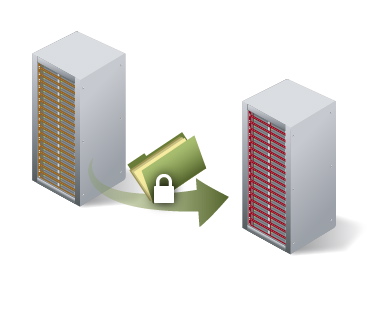







Interactive (Transactional) Messaging
|
Often, the bulk transfer of files or tables is required across a network between heterogeneous systems. By their very nature, these transfers can be lengthy. Nothing is more aggravating (and perhaps even catastrophic) than having the transfer fail in the middle and having to restart it. NetWeave Distributed Services’ Reliable File Transfer (RFT) solves this problem. RFT not only provides seamless file transfer between different proprietary data bases, converting formats as it goes, but it also checkpoints its progress. Thus, if a transfer fails in the middle due to a network outage or processor failure, RFT will pick up where it left off when the connection is restored. In addition, RFT’s use of sophisticated data-compression techniques ensures the maximum efficiency of data transfer, leading to shortened file transfer times. RFT also can transfer contents of FIFO queues from one platform to another. RFT integrates the encryption security of XYPRO Technology Corporation’s XYGATE®/ESDK (www.xypro.com) to protect data transfers in public networks. A number of NIS customers have devised innovative ways to utilize RFT services beyond the capabilities for which RFT first was conceived. One customer performs periodic SQL table transfers. First, the SQL table is dumped onto one platform. Next, RFT transfers the table to another platform, where the SQL data is massaged and inserted into a different SQL data base. Another customer uses RFT as a bridge between IBM MQSeries and Netweave. Here, an MQSeries queue is periodically transferred to another platform, where NetWeave reads the queue and creates NetWeave transactions from the MQSeries data. But by far the most popular use of RFT is the file transfer and conversion of files in a reliable, recoverable manner. Flat files, either UNIX or Windows, can be uploaded into key sequenced files on a NonStop server, for instance. The best part of RFT usage over FTP, of course, is the ability to prevent the restart of a large file transfer that has been interrupted due to a network problem. RFT allows such interruptions to be detected, reattempted automatically from the point of failure, and successfully completed without the need for manual intervention.
|
 Other NetWeave Solutions
Other NetWeave Solutions